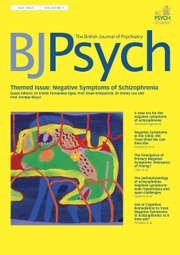Disclosures: Sumithran studies receiving grants from the Nationwide Well being and Medical Analysis Council and has co-authored manuscripts assisted by medical writing from Novo Nordisk. Please see the research for all different authors’ related monetary disclosures.
Save
Hospitalization dangers for psychiatric problems differ for adults after bariatric surgical procedure
Key takeaways:
Charges of loss of life from suicide didn’t differ between three bariatric surgical procedure procedures.
The chance of psychiatric hospitalizations assorted following sleeve gastrectomy, gastric bypass and restrictive surgical procedure.
Hospitalization charges for psychiatric problems differ by process sort and psychiatric analysis for adults with weight problems who endure bariatric surgical procedure, in accordance with a research printed in Weight problems.
“There are various potential the reason why psychological well being could enhance, or deteriorate, after a significant occasion like bariatric surgical procedure,” Priya Sumithran, MBBS, PhD, affiliate professor and researcher at Monash College in Melbourne, Australia, instructed Healio. “Essentially the most attention-grabbing discovering from this research is that adjustments in psychological well being aren’t the identical in spite of everything forms of surgical procedure. It will likely be essential to attempt to establish the people who find themselves most probably to expertise a deterioration in psychological well being so we are able to help them higher, and to search out out whether or not there’s something associated to the surgical procedure itself that we might change to cut back these dangers.”
Sumithran and colleagues performed a retrospective population-based cohort research of adults who underwent bariatric surgical procedure in New South Wales or Queensland, Australia, from July 2001 to December 2020. Hospital admissions have been obtained from the admitted affected person information collections in every state. Deaths have been collected from the state’s registries of births, deaths and marriages. Surgical procedure sorts have been categorized as restrictive, sleeve gastrectomy or gastric bypass. The research’s major final result was loss of life as a result of suicide. Hospital admissions for different psychiatric diagnoses have been analyzed as secondary outcomes.
There have been 121,203 adults who underwent bariatric surgical procedure, of whom 76% have been ladies and 90% have been aged 20 to 59 years. Of the research group, 85% underwent a sleeve gastrectomy. The imply follow-up time was 4.5 years after surgical procedure.
There have been 77 suicides that occurred throughout follow-up. Suicide charges have been related for restrictive surgical procedure, sleeve gastrectomy and gastric bypass.
Charges for hospitalizations as a result of psychiatric diagnoses assorted by surgical procedure sort. Adults who had a restrictive process carried out had a decrease threat of hospitalization as a result of self-harm (RR = 0.64; 95% CI, 0.47-0.88), temper problems (RR = 0.63; 95% CI, 0.53-0.75), any psychiatric analysis (RR = 0.78; 95% CI, 0.68-0.89) and admission as a psychiatric inpatient (RR = 0.77; 95% CI, 0.64-0.93) after surgical procedure in contrast with earlier than surgical procedure. Adults had a decrease threat of hospitalization as a result of self-harm after a sleeve gastrectomy in contrast with earlier than surgical procedure (RR = 0.88; 95% CI, 0.81-0.95). All three surgical procedure sorts have been related to an elevated threat for substance use after surgical procedure in contrast with earlier than surgical procedure. Adults who had a gastric bypass had a better threat of hospitalization as a result of temper problems after surgical procedure in contrast with earlier than surgical procedure (RR = 1.24; 95% CI, 1.07-1.44). Each sleeve gastrectomy and gastric bypass elevated the danger of hospitalization as a result of nervousness problems, any psychiatric analysis and admission as a psychiatric affected person after surgical procedure in contrast with earlier than surgical procedure.
“These findings received’t but change scientific follow, and it is very important emphasize that solely a small minority of individuals will expertise a decline in psychological well being,” Sumithran stated. “Total, most will expertise advantages after surgical procedure.”
The researchers wrote that analysis investigating the mechanisms of the associations noticed within the research could assist in the creation of evidence-based psychiatric administration methods.
For extra info:
Priya Sumithran, MBBS, PhD, might be reached at priya.sumithran@monash.edu.















